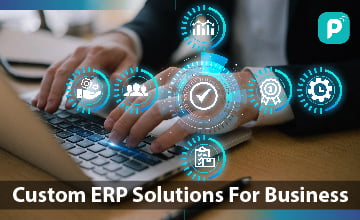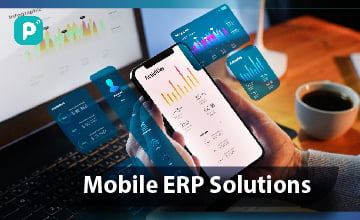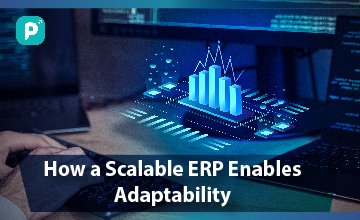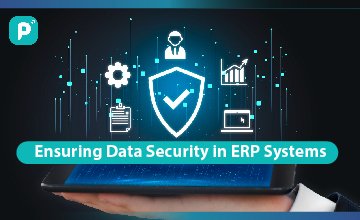Enterprise Resource Planning (ERP) systems serve as comprehensive, integrated software solutions designed to oversee and coordinate various facets of organizational operations, including finance, human resources, supply chain, manufacturing, and beyond. While custom ERP solutions for business offer immense benefits, their implementation and utilization come with a set of challenges that vary across industries. In this blog, we delve into the specific challenges encountered in deploying and using ERP systems within different sectors.
Understanding Industry-specific Challenges
Recognizing and comprehending the industry-specific challenges inherent to different sectors is a fundamental aspect of successfully implementing custom ERP solutions for business systems. These challenges vary across industries, spanning manufacturing, healthcare, retail, and more. For instance, the manufacturing sector may grapple with intricacies related to supply chain management and production workflows, while healthcare organizations may face compliance and patient data security concerns.
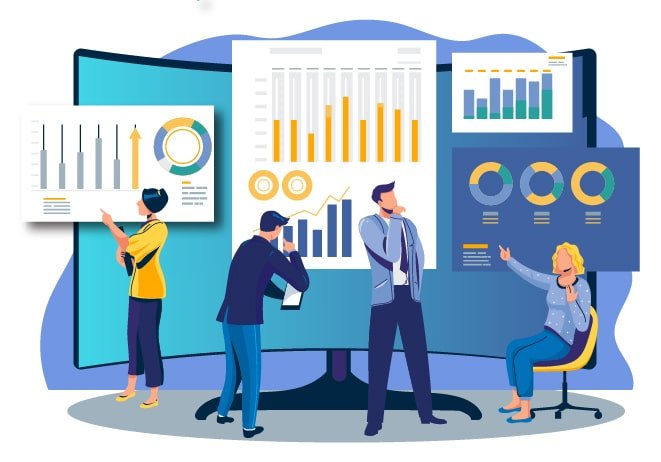
Elaborating on these challenges allows organizations to tailor their ERP implementation strategies to address sector-specific nuances effectively. This nuanced understanding ensures that the custom ERP solutions for business align seamlessly with the unique operational intricacies of each industry. By delving into the specific challenges within each sector, businesses can develop comprehensive and customized approaches, maximizing the benefits of ERP systems for their particular industry.
ERP Solutions for Manufacturing Industry Challenges
The manufacturing industry is characterized by intricate processes, diverse supply chains, and dynamic production workflows. Implementing custom ERP solutions for business in this sector is instrumental in addressing specific challenges and optimizing operational efficiency. Here’s an overview of how ERP solutions tackle manufacturing industry challenges:
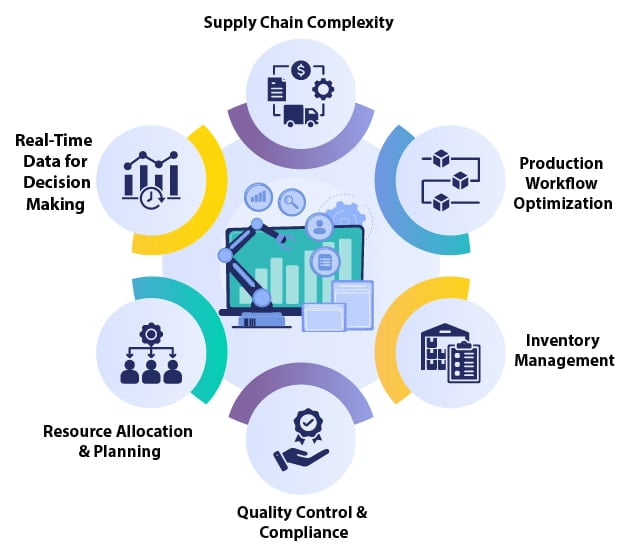
Supply Chain Complexity
- Challenge: Managing complex supply chains with numerous suppliers and diverse raw materials.
- ERP Solution: ERP systems streamline supply chain processes, offering real-time visibility into inventory levels, order statuses, and supplier performance. This aids in better planning, reducing lead times and optimizing resource allocation.
Production Workflow Optimization
- Challenge: Efficiently managing and optimizing production workflows for diverse products.
- ERP Solution: ERP modules for production planning and scheduling ensure optimal resource utilization, minimize downtime, and enhance overall manufacturing productivity. Real-time data insights facilitate adaptive production planning.
Inventory Management
- Challenge: Balancing inventory levels to prevent stockouts or overstock situations.
- ERP Solution: ERP systems provide robust inventory management tools, enabling accurate tracking of stock levels, automated reorder processes, and demand forecasting. This results in improved inventory turnover and cost control.
Quality Control and Compliance
- Challenge: Ensuring product quality and compliance with industry regulations.
- ERP Solution: ERP modules include quality management features, facilitating rigorous quality control processes. Additionally, the system helps in tracking and adhering to industry-specific compliance standards, reducing the risk of regulatory issues.
Resource Allocation and Planning
- Challenge: Efficiently allocating resources such as machinery, labor, and materials.
- ERP Solution: ERP systems offer modules for resource allocation and planning, optimizing the use of available resources. This results in reduced idle time, improved production efficiency, and cost savings.
Real-Time Data for Decision-Making
- Challenge: Accessing real-time data for timely and informed decision-making.
- ERP Solution: ERP provides real-time data insights, enabling manufacturing managers to make informed decisions promptly. This leads to improved responsiveness to changing market conditions and enhanced overall agility.
ERP Solutions for Retail Industry Challenges
The retail industry is dynamic, with ever-changing consumer demands, seasonal fluctuations, and diverse product lines. Implementing custom ERP solutions for businesses offers strategic solutions to address and overcome the unique challenges faced by retailers. Here’s a detailed exploration of how ERP solutions provide effective remedies to key issues in the retail sector:
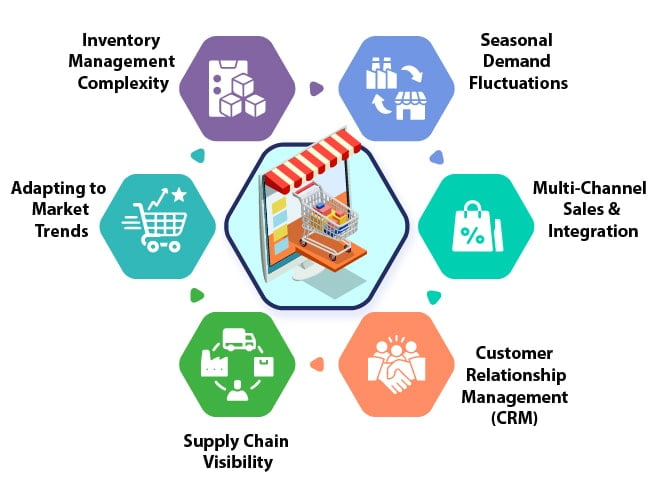
Inventory Management Complexity
- Challenge: Managing a vast and diverse inventory with varying demand for different products.
- ERP Solution: ERP systems streamline inventory management, offering real-time insights into stock levels, order statuses, and sales trends. This aids in optimizing inventory turnover, reducing holding costs, and preventing stockouts.
Seasonal Demand Fluctuations
- Challenge: Adapting to seasonal shifts in consumer demand for specific products.
- ERP Solution: ERP modules provide tools for demand forecasting based on historical data and market trends. This helps retailers plan inventory, promotions, and staffing effectively to meet peak demand periods.
Multi-Channel Sales and Integration
- Challenge: Managing sales across multiple channels, including physical stores and online platforms.
- ERP Solution: ERP systems integrate seamlessly with various sales channels, providing a centralized platform for order processing, customer data, and inventory management. This ensures consistency and efficiency across all retail channels.
Customer Relationship Management (CRM)
- Challenge: Building and maintaining strong customer relationships in a competitive market.
- ERP Solution: ERP includes CRM modules that enable retailers to track customer preferences, purchase history, and feedback. This data helps in personalized marketing, loyalty programs, and improving overall customer satisfaction.
Supply Chain Visibility
- Challenge: Ensuring visibility and coordination across the entire supply chain, from suppliers to distribution.
- ERP Solution: ERP systems provide end-to-end visibility into the supply chain, facilitating better coordination with suppliers, managing procurement, and optimizing logistics for timely deliveries.
Adapting to Market Trends
- Challenge: Keeping pace with rapidly changing market trends and consumer preferences.
- ERP Solution: ERP solutions offer real-time data analytics and reporting, allowing retailers to analyze market trends, adjust product offerings, and make informed decisions quickly.
ERP Solutions for Healthcare Industry Challenges
The healthcare industry operates within a complex environment, with numerous challenges ranging from regulatory compliance to patient care optimization. Implementing custom ERP solutions for businesses provides a strategic approach to address and overcome these unique challenges. Here’s a detailed exploration of how ERP solutions offer effective remedies to key issues in the healthcare sector:
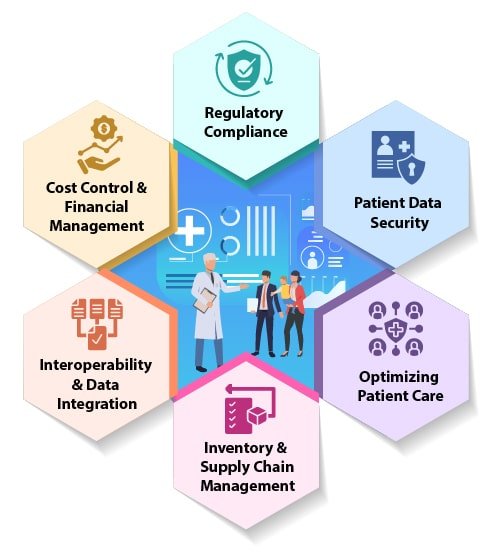
Regulatory Compliance
- Challenge: Adhering to strict regulatory standards and ensuring compliance with healthcare laws.
- ERP Solution: ERP systems include modules for compliance management, helping healthcare organizations stay up-to-date with regulations, manage documentation, and ensure proper reporting.
Patient Data Security
- Challenge: Safeguarding sensitive patient information against cyber threats and unauthorized access.
- ERP Solution: ERP systems implement robust security measures, including access controls and encryption, to protect patient data. This ensures confidentiality and compliance with healthcare privacy laws.
Optimizing Patient Care
- Challenge: Enhancing patient care through efficient resource allocation and streamlined processes.
- ERP Solution: ERP modules for healthcare help in optimizing resource allocation, appointment scheduling, and patient flow. This results in improved efficiency, reduced wait times, and enhanced overall patient experience.
Inventory and Supply Chain Management
- Challenge: Managing medical inventory efficiently and ensuring the availability of essential supplies.
- ERP Solution: ERP systems streamline inventory and supply chain processes, providing real-time visibility into stock levels, expiration dates, and order statuses. This aids in preventing stockouts and reducing wastage.
Interoperability and Data Integration
- Challenge: Integrating data from different departments and ensuring interoperability between healthcare systems.
- ERP Solution: ERP solutions offer seamless data integration, allowing healthcare providers to access patient records, diagnostic information, and other critical data from a unified platform. This facilitates better collaboration and decision-making.
Cost Control and Financial Management
- Challenge: Managing costs effectively while providing high-quality healthcare services.
- ERP Solution: ERP modules for financial management help healthcare organizations track expenses, manage budgets, and optimize financial processes. This leads to better cost control and financial sustainability.
ERP Solutions for Service-based Industry Challenges
Service-based industries face distinctive challenges related to project management, resource allocation, and client satisfaction. Implementing Enterprise Resource Planning (ERP) solutions offers a strategic approach to address and overcome these specific challenges. Here’s a detailed exploration of how ERP solutions provide effective remedies to key issues in service-based sectors:
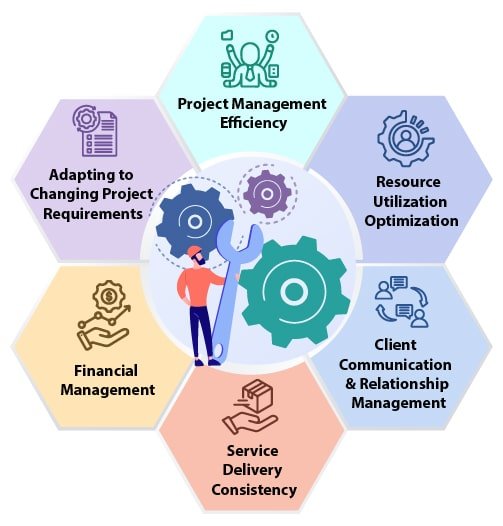
Project Management Efficiency
- Challenge: Efficiently managing and tracking projects, timelines, and resource allocation.
- ERP Solution: ERP systems provide project management modules that streamline planning, scheduling, and resource allocation. This ensures optimal utilization of resources and adherence to project timelines.
Resource Utilization Optimization
- Challenge: Allocating human and material resources effectively to meet project demands.
- ERP Solution: ERP modules for resource planning enable service-based industries to allocate resources based on project needs. This leads to improved efficiency, reduced idle time, and better cost control.
Client Communication and Relationship Management
- Challenge: Maintaining effective communication with clients and ensuring strong relationship management.
- ERP Solution: ERP systems include Customer Relationship Management (CRM) modules that help service-based industries track client interactions, manage feedback, and personalize communication. This enhances client satisfaction and loyalty.
Service Delivery Consistency
- Challenge: Ensuring consistent and high-quality service delivery across various projects.
- ERP Solution: ERP solutions provide standardized processes and workflows, ensuring consistency in service delivery. This helps service-based industries maintain a high level of quality across all projects.
Financial Management
- Challenge: Managing budgets, tracking project costs, and optimizing financial processes.
- ERP Solution: ERP modules for financial management assist service-based industries in tracking project expenses, managing budgets, and optimizing financial processes. This leads to better cost control and overall financial sustainability.
Adapting to Changing Project Requirements
- Challenge: Navigating through evolving project requirements and adapting to client needs.
- ERP Solution: ERP systems offer flexibility and scalability, allowing service-based industries to adapt to changing project requirements. This ensures agility in responding to client needs and market dynamics.
Conclusion
The key takeaway is that ERP solutions go beyond being mere management tools; they are transformative assets that empower industries to navigate complexities, adapt to change, and achieve operational excellence. As businesses evolve, the adoption of ERP becomes not just a necessity but a strategic imperative for sustained growth, client satisfaction, and competitive advantage.
Discover how our ERP solutions can benefit your organization. Visit our website for a detailed overview of how we can assist you with effective management solutions and more. Feel free to reach out to us today – we look forward to hearing from you!
All images belong to their respective owners. Please email [email protected] if removal is required.

